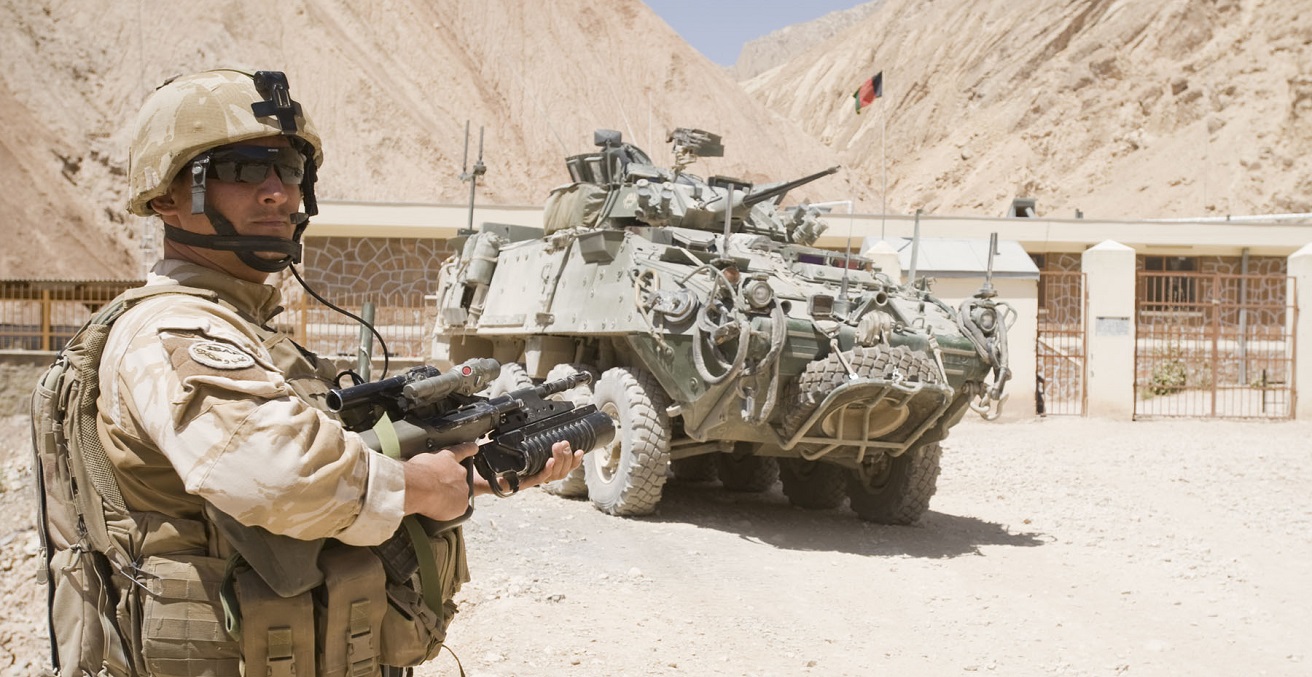Former Afghan interpreter Ismail Khan risked his life to help US special forces between 2006 and 2012, and although he now lives in the US state of Washington, he warns of a bleak future for Afghanistan, especially for Afghans who helped US forces but have not yet been evacuated as promised.
Inside The F-35 Lighting II Aircraft: What Makes The US Stealth Fighter Jets Truly ‘Invincible’
“I risked everything… My house was a safe zone for special forces, we planned a lot of meetings in my house, we talked to tribal leaders and did whatever we could to make sure they succeed,” Khan told Sputnik. “I was really happy to do that, [but] I did not know the consequences at that time, what it would bring to my family.”
Thousands of Afghans are trying to flee Afghanistan as the United States withdrawal nears completion and the military offensive of the Taliban movement (outlawed in Russia) to recapture the country intensifies.
“[Taliban] they’re going after every single person [interpreter], they will show no mercy… This is something happening on the ground there, it’s heartbreaking for those who stood with the US government at a time when they needed them the most, but now they are left behind,” Khan said.
Last week, the first group of nearly 250 Afghans who worked for the US military and diplomatic missions in Afghanistan arrived at Fort Lee, Virginia, and will boost efforts to evacuate more this month.
Politico reported, citing a US official, that the State Department is planning to evacuate an additional 4,000 applicants for the special immigrant visa program and their family members later this month, which brings the overall total for the group up to 20,000 refugees.
The Afghan interpreters are expected to be flown out from Kabul to third countries, the report said.
In addition, the US State Department said on Monday the United States is widening eligibility for priority refugee admission for thousands more Afghans who worked with US forces but are not eligible for the Special Immigrant Visas (SIV).
Over the last several months, Afghans who served as interpreters and in other roles for US forces have faced increasing threats from the Taliban. The United States promised to get all Afghan allies out of Afghanistan before the US withdrawal is expected to be done by August 31.
Khan said he has many friends and family members who worked alongside US forces and are still waiting to be evacuated out of Afghanistan.
“One of my cousins, who worked for about ten years with the US special forces, in 2013 his son who was nine years old was kidnapped by the Taliban and they were asking for $150,000 US dollars,” Khan said. “They gave some money and work with the government and released the son.
About four months ago they killed his older son. So these are the consequences [for] the support that they have for the US government, that’s what they get waiting for a visa. [Taliban] they’re going to kill every single one of them [interpreters] if they take over the country.”
Joint Chiefs of Staff Chairman Gen. Mark Milley said about half of the 419 district centers in Afghanistan are under Taliban control, but not any of the 34 provincial capitals in the country.

“They [Taliban] do not have any interest [in peace],” Khan said. “They will never do peace. If they wanted to do peace, they would have done it a long time ago, but we have been hearing about these negotiations and talks for years. [Taliban] they are more violent every single day.”
US Central Command (CENTCOM) Commander Gen. Frank McKenzie disclosed last month that the United States has increased airstrikes against the Taliban in support of Afghan forces over the last several days and is prepared to continue strikes in the coming weeks if the Taliban continues its attacks.
Afghanistan will fall into further turmoil and become a safe haven for terrorists, including the Islamic State [banned in Russia], Khan predicts.
“ISIS is already there [in Afghanistan] and if the Taliban takes over it will be a safe haven for most of the terrorists. Afghanistan will be their safe zone,” Khan said. “They will definitely go there and do their operations from Afghanistan. Whoever comes in their way, they will be killed.”
The United States has called on neighboring countries, such as Pakistan, to do more to bring stability to the region after a US exit, but Khan does not believe that is realistic.
“I wish Pakistan and other countries would stop interrupting in the peace process. People need to understand Taliban is just a name, these are the neighboring countries that they don’t want stability and peace in Afghanistan,” Khan said. “I don’t think that the world needs to rely on neighboring countries.”
Afghan First Vice President Amrullah Saleh has continuously accused Pakistan of facilitating the Taliban takeover attempt in Afghanistan.
“Afg[hanistan] is under a full-scale invasion of Talib [Taliban] terrorists who have an organized backing and sponsorship in Pakistan,” Saleh said via Twitter on Sunday. “It has to be tackled. Talibs use the Doha office for deception. They have no intention to engage in meaningful negotiations.”

Khan warns that the United States is withdrawing from Afghanistan at the wrong time and predicts US forces will find themselves in a similar situation like Iraq, when a withdrawal of US forces was followed by the emergence of the Islamic State terror group.
“If they [US] wanted to pull out, they should have done it in 2006, they should have done it in 2010, this is not the right time to do it and with that short period of time when the Taliban are on the rise and they are more violent,” Khan said. “When they see that the US are out, they are pushing their operations, their attacks on the local population as well. So I don’t think this is the right time.”
US Defense Department said on Thursday in its quarterly report from the Special Inspector General for Afghanistan Reconstruction (SIGAR) that the Afghan government faces an existential crisis unless the military offensive by the Taliban movement is reversed.
The report said the absence of a major US troop presence will be consequential and create a greater challenge for the Afghan government in light of growing insurgent pressure.
Leaving Afghans behind during the rise of the Taliban “will definitely affect future cooperation,” Khan said.




